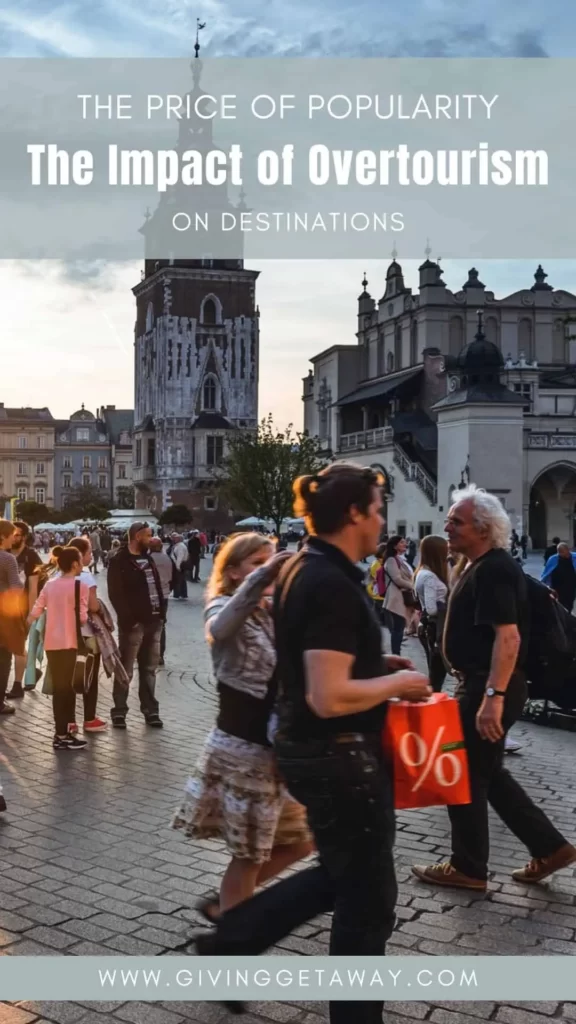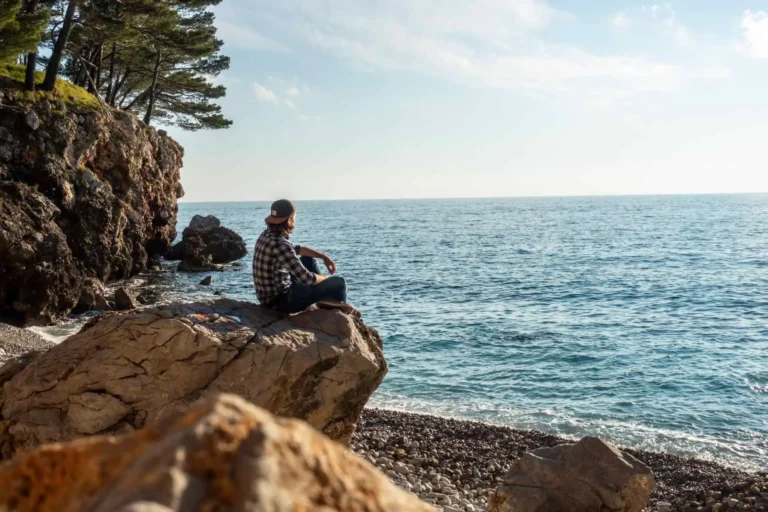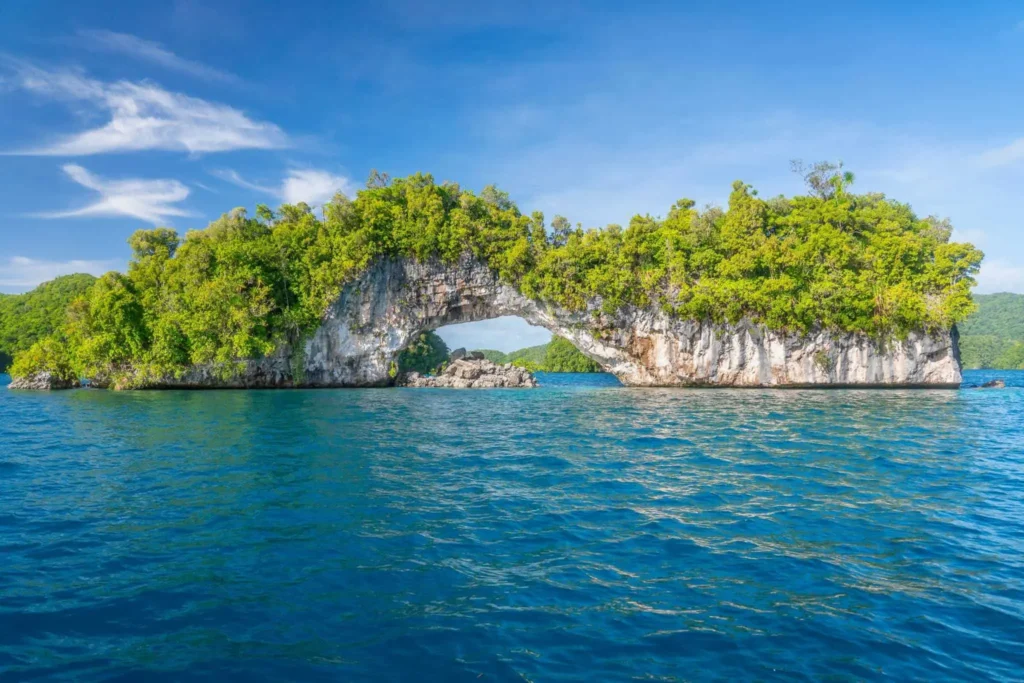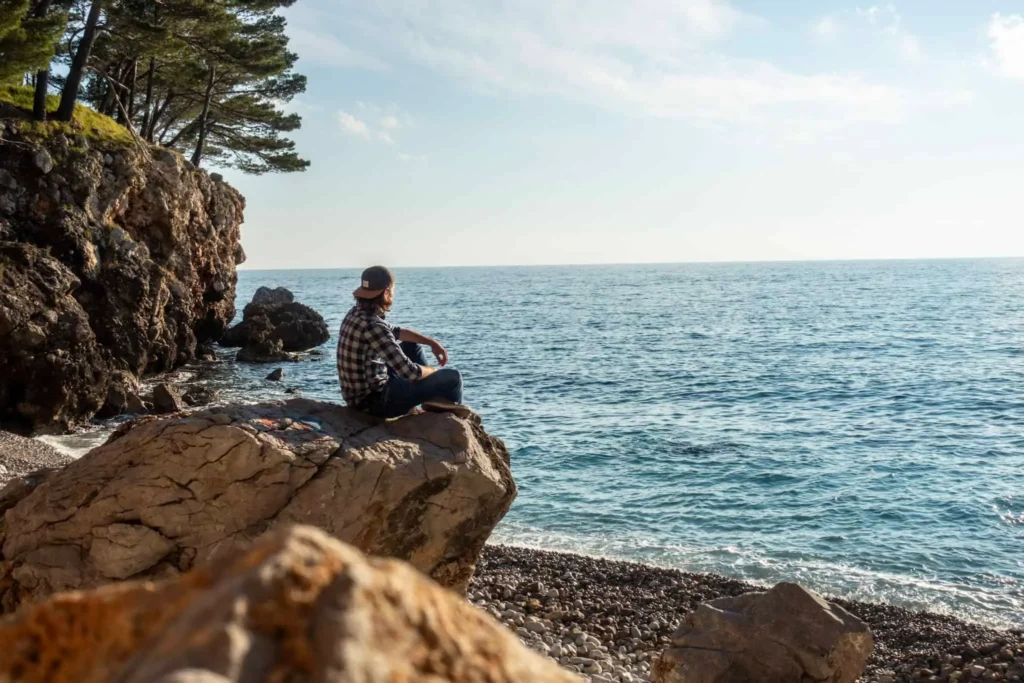| This post may contain affiliate links. Whenever you book or buy something through one of these, Giving Getaway gets a small commission, of which 100% will be donated to charity, without any extra cost to you! |
The impact of overtourism has become a hot topic in recent years, as more and more destinations around the world struggle to manage the influx of tourists. Overtourism occurs when a destination becomes so popular that it can no longer sustain the number of visitors it receives.
The result? Environmental degradation, overcrowding, cultural erosion, and other negative impacts. At the same time, overtourism can also bring positive impacts such as job creation, economic growth, and improved infrastructure. But at what cost?
In this blog post, I will talk about the impact of overtourism on destinations and the challenges they face in managing the price of their newfound popularity. I will also highlight the strategies destinations are implementing to mitigate the impacts of overtourism.
The Definition and Causes of Overtourism
With the rise of cheap transportation and global connectivity, it’s no wonder that some places have become increasingly popular – but this newfound stardom comes with a cost. Overtourism is an issue that has become more and more common in recent years, resulting from the surge of travelers to certain destinations. It occurs when a destination receives significantly more visitors than its infrastructure can handle, leading to overcrowding, environmental degradation, and a decrease in the quality of life for locals.
The causes of overtourism vary depending on the destination; however, some common causes include cheap travel options such as budget airlines and online booking sites, increased international connectivity through social media platforms like Instagram or Facebook, and growth in the tourism industry overall. These factors have contributed to an increase in visitor numbers at many destinations worldwide, which can lead to overbooking consequences such as overcrowded attractions or high accommodation prices.
As destinations try to balance the economic benefits of tourism with the need to preserve their cultural heritage, finding sustainable solutions becomes crucial. In the next section, we’ll delve deeper into the negative impacts of overtourism and explore ways to mitigate them. But before we take a look at what destinations can do to address overtourism, let us first highlight the negative and the positive impacts overtourism can have on them.
The Negative Impact of Overtourism on Destinations
When destinations receive more tourists than they can handle, the natural and built environments can suffer, and the quality of life for residents can decline. In this section, we’ll explore some of the key negative impacts of overtourism in more detail, looking at how it affects the environment, local communities, and visitors themselves.
Overcrowding
Overcrowding is another major negative impact of overtourism that can have a significant impact on destinations. The surge in the number of tourists can lead to overcrowding, which can be inconvenient for both tourists and locals. Crowded attractions, long wait times, and congested transportation can lead to a poor visitor experience, damaging the destination’s reputation and deterring future visitors.
Moreover, overcrowding can lead to safety hazards in emergencies, making it difficult for first responders to navigate through the crowd. In extreme cases, overcrowding can also lead to the closure of attractions or destinations due to safety concerns, which can further impact the local economy.
Economic Inequality
Economic inequality is another negative impact of overtourism. Although tourism can generate significant economic benefits for a destination, these benefits may not be shared equally among all members of the community. Overtourism can lead to the concentration of tourism in certain areas, resulting in lopsided wealth distribution.
Wealthy investors and businesses may benefit the most from the increase in tourism, while local communities may not see as much of a benefit. This can lead to widening economic disparities and contribute to social and economic inequality in the area.
Environmental Degradation
Overtourism can be tough on the environment, and it can lead to pollution, waste accumulation, and damage to natural habitats. When there are too many tourists in one place, the resources and infrastructure of the area may not be enough to support them, leading to excessive use of resources, such as energy, water, and fuel.
This overuse can cause long-lasting damage to the environment and wildlife. For example, tourists may litter or leave trash, and this can harm the local flora and fauna. Moreover, the use of cars and other transportation can cause air pollution and contribute to climate change.
Cultural Erosion
Cultural erosion is a serious issue that arises from overtourism. When a destination becomes overcrowded with tourists, locals may feel compelled to adapt to their needs, which can lead to the loss of traditional practices and cultural identity. This phenomenon can also lead to the commodification of cultural experiences, with businesses catering to tourists rather than preserving local cultures.
This can cause a decline in authentic cultural experiences and ultimately discourage future visitors who are seeking an authentic and unique travel experience. In addition, the homogenization of local cultures can lead to a loss of diversity, making destinations less attractive to tourists who value cultural experiences.
Strain on Resources
Another negative impact of overtourism is the strain it puts on a destination’s resources. The influx of tourists can lead to high demand for resources such as water, electricity, and food, which can result in shortages and higher prices for locals and visitors alike. This overuse of resources can also lead to depletion and long-term consequences for the destination’s sustainability.
In some cases, destinations may need to import resources from other areas, which can further strain the environment and contribute to carbon emissions from transportation. Ultimately, this strain on resources can lead to a decrease in the quality of life for locals and impact the attractiveness of the destination to future visitors.
The Positive Impact of Overtourism on Destinations
Despite its negative effects, overtourism can also have positive impacts on destinations. The economic benefits of tourism can create job opportunities and stimulate local development, while increased demand for goods and services can drive the growth of the local economy. Let us now explore the positive impacts of overtourism in more detail.
Job Creation
Job creation is one potential positive impact of overtourism. The increase in tourist arrivals can lead to a higher demand for goods and services, creating both direct and indirect jobs in the hospitality, retail, and transportation industries. In many cases, these jobs are accessible to residents, providing an opportunity for them to earn an income and improve their standard of living.
Additionally, the growth of the tourism industry can stimulate the development of related sectors, such as agriculture and crafts, creating even more employment opportunities. Overall, the increase in job opportunities can significantly benefit destinations experiencing overtourism.
Economic Growth
Overtourism can have a positive impact on the economic growth of a destination. As more tourists visit the area, there is increased demand for goods and services, which can lead to more investment and development. This can create job opportunities and stimulate the local economy, leading to increased prosperity.
Additionally, the influx of tourism can attract further investment and development, such as the construction of new hotels or the expansion of transportation infrastructure. The economic benefits of overtourism can be significant, and if managed properly, can lead to sustainable growth for the destination.
Cultural Exchange
Cultural exchange is another potential positive impact of overtourism. When visitors interact with locals, they have the opportunity to learn about different cultures, traditions, and ways of life. This cultural exchange can lead to a greater appreciation and understanding of different perspectives, which can help promote tolerance and acceptance.
Also, locals may benefit from exposure to different cultures and ideas brought by visitors, which can help promote diversity and enrich the local community. Cultural exchange can also lead to the creation of new cultural experiences and products, such as food, music, and art, which can help boost the local economy and promote the destination’s unique identity.
Improved Infrastructure
The increase in tourism can lead to the development of transportation systems, communication networks, and healthcare facilities, which can benefit both tourists and locals. Improved infrastructure can make the destination more accessible and attractive to visitors, thus contributing to the growth of the local economy.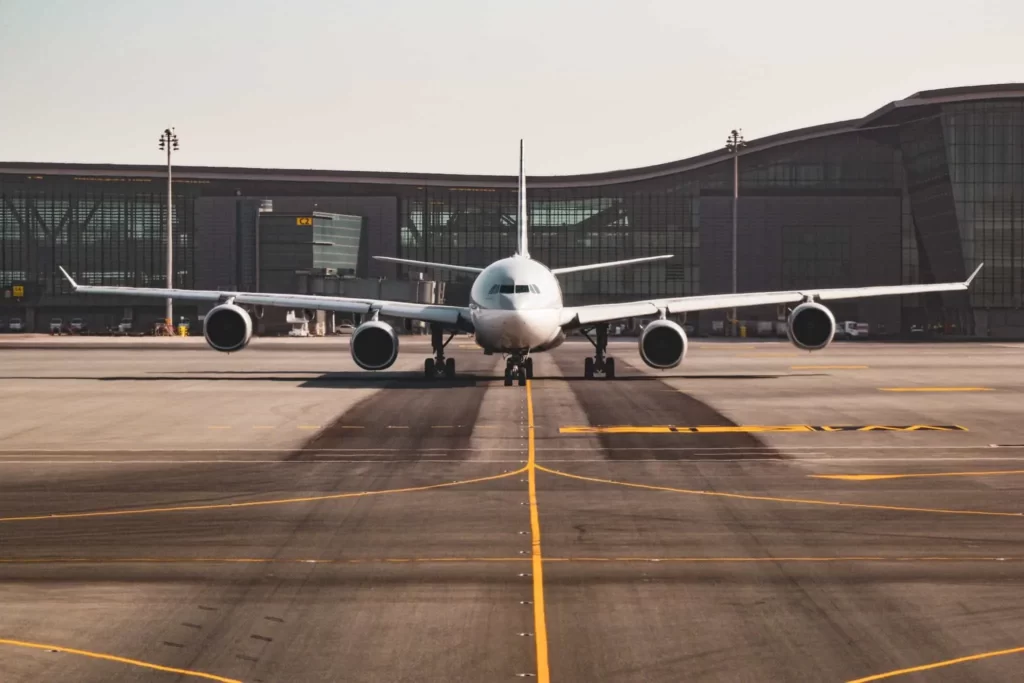
In addition, the development of infrastructure can improve the quality of life for locals by providing better access to essential services and facilities. This is crucial for the long-term sustainability of the destination, and overtourism can be a catalyst for its development.
Preservation of Heritage
The preservation of cultural heritage sites and landmarks is another positive impact of overtourism. The economic benefits generated by tourism can be used to fund the maintenance, restoration, and preservation of these important cultural assets. This not only ensures their longevity but also contributes to the cultural identity of the destination.
Additionally, the influx of tourists can raise awareness about the importance of preserving heritage sites, leading to increased efforts to protect and maintain them for future generations to enjoy.
Case Studies
As crowds flock to these iconic spots, it’s becoming increasingly clear that the cost of fame is too high for these beloved locales. Overtourism has had a major impact on cities such as Venice, Barcelona, and Bali, with many of these destinations facing unprecedented overcrowding challenges.
Sustainability strategies have been implemented to limit the environmental damage caused by overtourism. In Venice, for example, cruise ships are banned from entering the city center and there are restrictions on the number of visitors who can enter certain tourist attractions. Similarly, in Bali, local officials have introduced a “One Island One Voice” campaign to promote responsible tourism and preserve the culture and environment of the island.
Despite these efforts to mitigate its effects, overtourism can still result in economic benefits in some cases. For instance, Barcelona has seen its economy expand due to increased revenue from tourism-related businesses such as hotels and restaurants. However, this growth has come at a cost – with locals being pushed out of their homes due to rising rental prices and increased traffic congestion making life difficult for those living nearby popular attractions.
These case studies demonstrate how overtourism can affect both positive and negative outcomes for destinations around the world – making it essential for governments to implement effective policies that address both economic development needs as well as cultural preservation goals when dealing with overcrowding challenges posed by tourists.
Solutions and Recommendations
Crowded streets, bursting businesses, and overwhelmed residents – these are the realities of overtourism that must be addressed. To mitigate the effects of overtourism, governments should take steps to regulate tourism at their destinations by introducing taxes on tourist activities or limiting the number of visitors allowed into certain areas at any given time.
Additionally, sustainable travel practices should be encouraged among travelers so that they are aware of their impacts on local communities while still enjoying their holiday experience. Tourist boards could also provide educational material about sustainable tourism practices before visiting a destination so that travelers are informed before they arrive.
Both tourists and destinations alike need to acknowledge the potential problems created by overtourism and work together towards solutions that ensure everyone benefits from tourism without negative impacts on people’s lives or ecosystems. Through careful regulation and responsible behavior from tourists, we can avoid overbooking consequences while still allowing everyone to enjoy their favorite places around the world in safety and comfort.
Conclusion
As we have seen, overtourism can have both positive and negative impacts on destinations. While it can stimulate economic growth, job creation, and cultural exchange, it can also lead to environmental degradation, overcrowding, cultural erosion, economic inequality, and a strain on resources. It is important for destinations to manage tourism growth sustainably, ensuring that the negative impacts are minimized while the positive impacts are maximized.
This can be achieved through careful planning, stakeholder involvement, and the implementation of sustainable tourism practices. By doing so, destinations can continue to benefit from the positive impacts of tourism while preserving their natural and cultural heritage for future generations to enjoy.
Now how about you? Are you ready and willing to do your part and make a difference while traveling? If so, why not use the search widgets or click on the ad banners on this website to book your accommodations, flights, rental cars, and more? Your completed booking will earn a commission, with 50% of the profits going towards charity events like the 2021 Christmas gift drive for kids and teens in a children’s home in Montenegro.
So not only will you be enjoying a wonderful vacation, but you’ll also be contributing to a better world. Book your trip through our site and join us in making a positive impact today!











